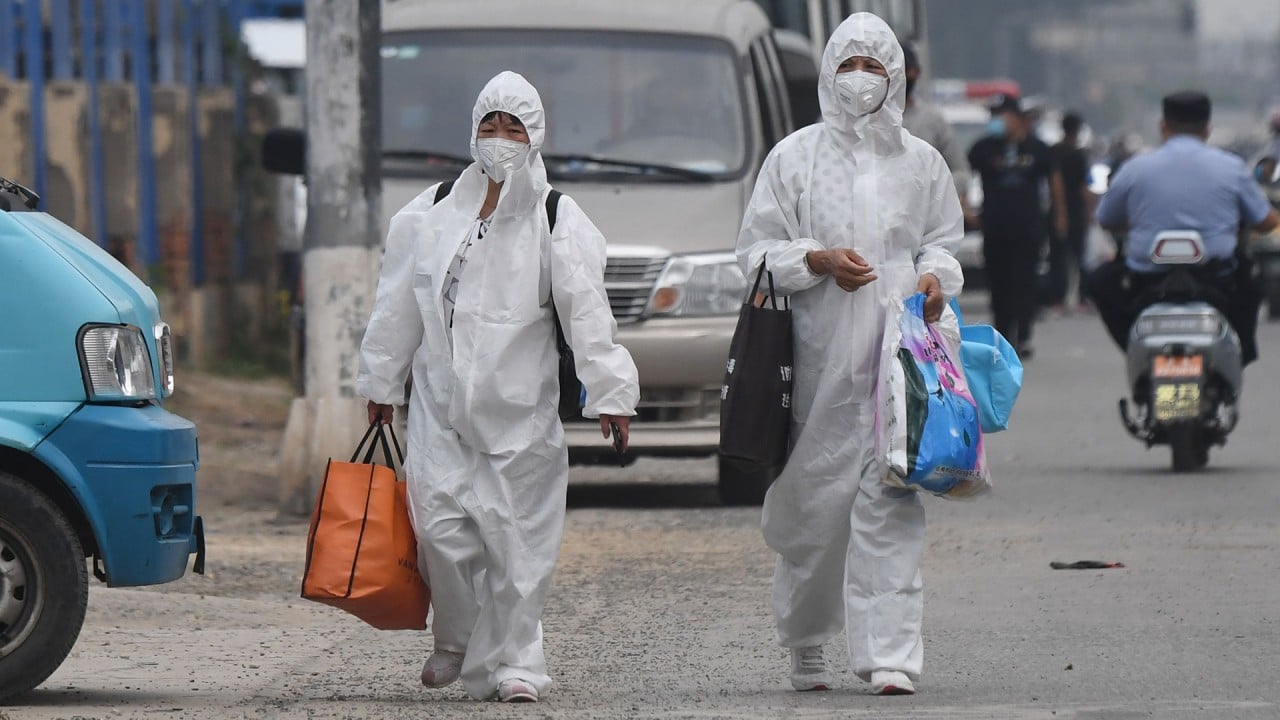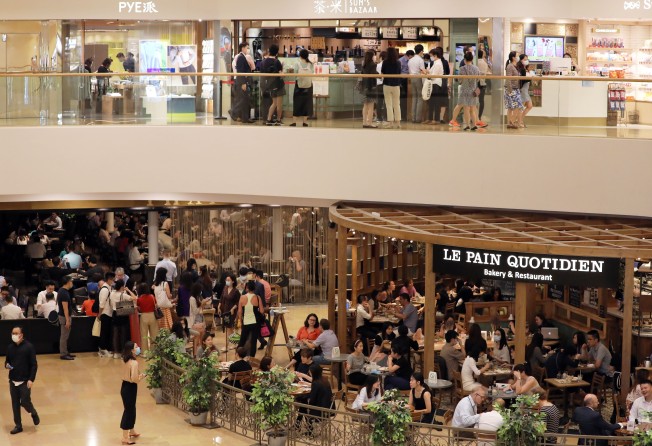
01:39
New coronavirus outbreak at Beijing food market fuels fears of second wave of cases in China

Quarantine exemptions should be cancelled for travellers arriving from Beijing, health experts said on Thursday as the coronavirus outbreak in the capital continued to worsen.
The calls came a day after the Hong Kong government confirmed it would require those who had been granted quarantine exemption, and flew into the city from Beijing, to take a Covid-19 virus test.
The government said the same requirement would be imposed on those arriving from Beijing through land borders.
Hong Kong on Thursday recorded four imported Covid-19 cases, all involving arrivals from Pakistan. But no local infections have been reported in the last five days.
So far, the city has reported 1,124 coronavirus infections, though no imported cases have been reported from Beijing since the recent outbreak there.

01:39
New coronavirus outbreak at Beijing food market fuels fears of second wave of cases in China
Under the new policy, Covid-19 testing is now compulsory for those exempted people, who now will be required to submit a saliva sample collected at home.
People on the exempted list include those deemed important for the running of government, protecting the safety or health of Hongkongers, supplying goods and services required for the normal functioning of the city, as well as “exceptional circumstances” cases that serve Hong Kong’s public interest. These involve 30 categories of people such as air travel workers and cross-border students.
University of Hong Kong microbiologist Dr Ho Pak-leung said all people arriving from Beijing, regardless of how they reached Hong Kong and whether they had been exempted, should be quarantined and tested mandatorily.
“Any exemption of quarantine for arrivals from Beijing since early June should be cancelled, as the earliest re-emerged case was discovered on June 4 at the market,” Ho said on a radio programme on Thursday.
A wholesale food market in Beijing has been linked to more than 100 infections.
“We should at least track down those exempted arrivals and do the test, and if their returning dates are still within the past 14 days, they should be given a wristband and put into quarantine,” he said.
“Although the risks from Beijing are not that high compared to other countries, the Hong Kong government should stay vigilant. Officials should also provide figures on how many people are exempted from quarantine or tests currently.”
According to replies from 12 government bodies, including the Food and Health Bureau and the Trade and Industry Department, more than 11,000 people had been granted an exemption upon arriving from the mainland, Taiwan or Macau. But no separate figure for those travelling between Hong Kong and Beijing was given.
Professor David Hui Shu-cheong, a respiratory medicine expert at Chinese University who is also an adviser to the government on the pandemic, said a 14-day quarantine should also be imposed on at least those who were currently exempt for business reasons.
“Those who returned by air should be treated the same as those returning from Europe and North America, meaning to submit saliva samples [right after arrival] and go back home for quarantine,” Hui said.
The exemption for people for public duty reasons should also be cancelled if the outbreak in Beijing continued to spread, he added.
But the government said quarantine exemptions were necessary for some people, such as air crew members and people responsible for goods or services supplied to Hong Kong.
“Those exempted were needed to commute between the two places. Their activities in the mainland had already been cut down to a certain extent to reduce contacts. They are also required to receive medical surveillance to ensure their health condition,” a government statement read.
Meanwhile, the Centre for Health Protection said residents from flats numbered 10 and 12 at Luk Chuen House in Lek Yuen Estate in Sha Tin, who were evacuated for quarantine earlier this month after a few cases were reported from the block, had been tested for antibodies against the virus.
None of those earlier reported as not infected were tested positive for the antibodies, suggesting no other unknown infections in the cluster.
Health authorities added that tracer-gas measurements, a procedure to look into the ventilation in a building, had been done in the housing block to determine how the virus might have had spread. Results of the testing were being analysed. So far, nine residents of the block were found infected with the coronavirus.
Dr Tony Ko Pat-sing, the chief executive of the Hospital Authority, said public hospitals were preparing to tackle a possible second wave of Covid-19 infections. Around 100 more beds were refurbished as “second-tier” isolation beds, taking the total number of such facilities to 500. This comes in addition to some 1,200 first-tier isolation beds, which are of higher standard.
He said maintenance and system upgrade would also be done gradually in various isolation beds as the demand for those facilities had been less intense recently.
He added the authority would also consider isolating Covid-19 patients in the community in future, if there was a sudden surge of cases. But details of where those isolation facilities would be located were not revealed.